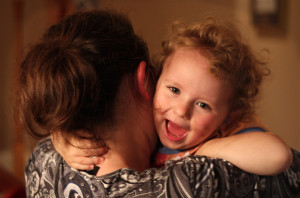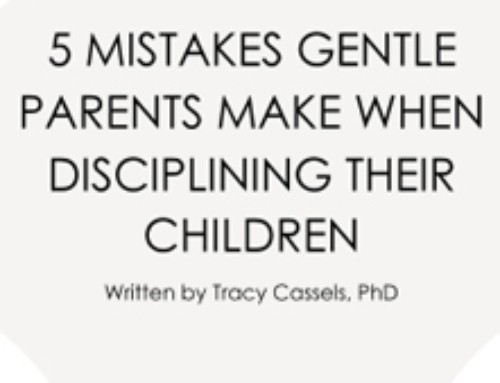 I recently had a day on our facebook page which focused (almost) exclusively on talking about punishment, discipline, and consequences. I admitted my own struggle with yelling and many people echoed similar sentiments. For many of us, we grew up with physical punishment, yelling, shaming, even full-on abuse. We so desperately want to change that cycle, but how? It can be unbelievably difficult to do. One mom asked if I could do a post on ways to change and work towards being the gentle parent we want to be. So here we are.
I recently had a day on our facebook page which focused (almost) exclusively on talking about punishment, discipline, and consequences. I admitted my own struggle with yelling and many people echoed similar sentiments. For many of us, we grew up with physical punishment, yelling, shaming, even full-on abuse. We so desperately want to change that cycle, but how? It can be unbelievably difficult to do. One mom asked if I could do a post on ways to change and work towards being the gentle parent we want to be. So here we are.
Let me say I’m no expert. I have moments as a parent I wish I could erase. I yell, I threaten to leave, I storm out of rooms. They aren’t often, but they aren’t pretty so it’s rather good they’re few and far between. But as one parent who struggles to change the trajectory for my family a bit more (my mom made the first huge change, which you can read about here), I can share some of the ideas that have worked for me and some of the pages that I draw inspiration from on a regular basis. And if you are willing and open to sharing your own successes in the comments, I’m sure other parents would love to read even more! Some of what I do has been modified from things I learned in my clinical training (I have an MA in Clinical Psychology) and some has been taken from ideas of change in other domains and modified to fit my parenting needs. And some is just me winging it.
Without further ado, here are the things that have been most helpful to me so far…
Don’t Expect Perfection
Like every other task we try to take on, we can’t expect perfection out of the gate. And yet time and again I’ve heard of parents (and have been that parent) who gets so down on themselves about their slip ups that they are almost ready to throw in the towel. More than that, some parents get even more frustrated and angry when they slip up which cycles into worse situations for parent and child. If you can set small goals for yourself and not beat yourself up when you do slip up, you have a far greater chance of succeeding with the longer-term changes that you’re aiming for.
I acknowledge that while this sounds nice and fluffy, it’s damn hard, especially when we’re talking about parenting. Why? Because our screw ups are magnified by the fact that we have just hurt someone we love immeasurably. How can we expect anything but perfection? The important thing to remember – as hard as it is – is that you will do more harm than good if you expect too much of yourself too soon. You are changing yourself. And most likely changing yourself from behaviours that have been a part of your life since you yourself were a child. That’s freaking hard. I’m sure some people can turn it off right away never to err again. Most of us aren’t them and we’ll encountered some really shitty bumps on the way and we have to learn to accept them, learn from them, and…
Always Apologize
For some strange reason in our modern society, the idea of a parent apologizing to a child for a parental act isn’t too common. We apologize if we don’t give them ice cream, but if we yell? Well, we rationalize it away and say they deserved it, we were stressed, etc. and don’t think to apologize to the little person we harmed. But apologizing serves two primary roles that should be at the forefront of our mind when we’re working towards becoming gentle parents and a secondary role that we should all hope for.
First, apologizing works towards mending the relationship with our child. We have to be ready for our child to not accept our apology right away (you can read about that here) and to work through their own feelings, but it gives validation to their feelings of hurt which is so important to them not resenting us or feeling bad about themselves. Second, it can highlight to ourselves the reasons why our behaviour is wrong. So often we get caught up in rationalizations and excuses for our behaviour; apologizing is a way to own up to it without excusing it and doing it out loud means we own up to ourselves as well. The secondary role is that we also teach our children how to apologize and mean it. No forced apologies, but really showing them that it’s okay to be wrong sometimes but that when we are, we work to make amends.
Personally I have added to my apologies what I should have done instead which forces me to think about an alternate course of action which will hopefully stick in my brain the next time I encounter a similar situation. Let me be clear that vague “I should have”s don’t work very well (learned the hard way). Be as specific as you can so you can be ready. This brings me to…
Pay Attention to Your Triggers
You have to be willing to spend moments after you’ve screwed up and see what it was that triggered you. When I first committed to yell less or walk out of a room less I wasn’t very successful. I always apologized and even thought of different ways to handle it, but I soon discovered not a whole lot had changed. I had to accept that I just didn’t know what was triggering me so I was never prepared to handle my rising frustration levels and thus was never prepared to implement any different course of action.
I finally starting really taking note of when my frustration was getting the better of me. For me it’s nighttime before bed (only recently as she’s older and really wanting to stay up all night and play) and if we’re in a rush to get somewhere. That’s it. Every other time I can pretty much stay calm as a cucumber. Noting this meant I was finally able to start thinking about these times in advance and focusing my thoughts of alternatives to these specific situations instead of having to think of every possible scenario. But even knowing this doesn’t guarantee success because…
Not All Solutions Will Work
Don’t you wish you could come up with one magic solution and suddenly it fixes everything? Yeah, me too. However, it doesn’t really work that way, especially when another human being is included in the mix. You can come up with what you think is the most brilliant solution to you not losing your cool with your child and you’ll implement it and then find yourself yelling/spanking/etc. all over again.
Don’t give up.
The fact is, we won’t know what methods will work in our various situations unless we keep trying. This is where the resources at the end here may help; they are sites with all sorts of ideas to calming down and using consequences instead of punishment if that’s the problem. However, I will say that I’ve found it most useful to try for solutions that avoid the problem to begin with. A small anecdote if you will… Getting my daughter ready at night is our biggest frustration. I’m tired and she’s ready to play more and not wanting to get dressed into PJs, brush her teeth, etc. After a couple weeks of trying various techniques (none of which really helped), I landed on using a timer. We go upstairs to the bedroom and we set the timer for 5 minutes. Those first 5 minutes are hers to play and do what she wants before we start getting ready. I don’t bug her about getting ready, I just focus on getting ready myself. When the alarm goes off we set it for 5 minutes again and we have 5 minutes to do teeth; if teeth aren’t done at that time, fine, they don’t get done, but she knows it means absolutely no sugar the next day – including fruit, one of her favourites. If she’s done early, she has the rest of the time to play. Then we set it for another 5 minutes and that’s PJ time, and again, if she’s dressed early, she can play, but if she’s not dressed, she’ll go to sleep like that (which she doesn’t want to do). And then if I’m not ready yet, she gets another 5 minutes to play. So far, so good. Maybe it won’t last, but at the moment it’s been a life saver and I haven’t yelled or walked out of the room once since implementing it.
I’m not saying this exact thing will work for you, but just to highlight that you are limited only by your imagination when it comes to thinking of possible solutions. And you may have to put your imagination to good work! In that department, let me leave you with…
Resources
These are sites or posts that have great advice:
The Orange Rhino: One mom’s quest to stop yelling for a year. Spoiler: she’s successful!
Aha! Parenting: More for positive discipline alternatives from a clinical psychologist across all ages (something you don’t see often).
Our Muddy Boots’ Thirty Days to Positive Parenting: I love OMB on all topics, but this one is specific to the question at hand here.
Janet Lansbury: I actually don’t agree with all of RIE, but I like her section on child behaviour and discipline. Some good tips here.
And these are some books that might help (clicking on the title will take you to your local Amazon where a small portion of any purchase will be donated to EP to help us cover costs):






I received two excellent pieces of advice in grad school that I refer to constantly. Nancy Boyd-Franklin, a clinical psychologist and amazing person, taught me that when you are in a power struggle either as a parent or professional, do not engage in a tug-of-war. As she said it, “drop the rope.” I actually visualize a thick, knotted rope in my head when I am in that kind of situation and it helps.
The second piece of advice coincides with your writing about apologies and is based on Siegel’s work on rupture and repair. Mistakes will happen. We will overreact, misjudge a situation, etc. There will be ruptures in our relationships with our child(ren). That is inevitable and okay. The important thing is whether it is repaired. A relationship with ruptures and repairs is even stonger than one without any ruptures because it reveals a different side of us and reinforces bonding.
Melissa, what thoughtful insight to dealing with conflict resolution! I will definitely be adding this lovely wisdom to my parental ( and professional) toolbox. Bravo!
I have found the blog Joyful Toddlers http://joyfultoddlers.com/ to be an amazing resource for gentle parenting.
What I find works for me is when I feel myself getting frustrated, I imagine my child is not mine and how would her parent feel about the way I am speaking to her and then I change my tone 🙂
That’s a very good idea! Because I know I would not let anyone yell at my kids, even though I am harsh myself 🙁
I would love to hear more of your thoughts on RIE. It’s certainly gaining a following and I have been interested and wondering if any of it is supported by research.
I have been on this journey of becoming a gentle parent for some time. Some days I failed so bad I could barely look myself in the eye (so to speak). But I kept trying, without the support of my family or husband, by the way, and I feel like it has really paid off. One book that made a HUGE difference in my way of thinking and acting was “Out of Control: why disciplining our kids doesn’t work and what will”. The author also wrote “The Conscious Parent’, which I’m reading now and which is also promising so far. It’s not a ‘how to’ book, it’s more of a ‘why’ book. It changed my life, and hopefully that of my children.
This is something that has been a struggle for me. My mother, a single parent, was nearly constantly abusing my brother and I. I’ve realized in recent years that I’m STILL afraid of her. I haven’t lived with her in over a decade, but she still terrifies me. I don’t want that for my kid.
It took me years to even realize just how abusive my mother was, and yet, I still thought that spanking is the best way to discipline a child. While I was pregnant, and while my kid was tiny, I thought it’d happen someday, and it would be awful, but that it’s my job as a parent to do so. Even after reading spanking statistics, I still thought it was the best way. And then one day (after yelling and yelling at him and unable to understand why he wasn’t listening- I’ve since changed my yelling ways) I smacked his bottom. It didn’t hurt him, didn’t phase him, he turned around, stared me down, and smacked me back. Like a bolt-of-lightning epiphany that you read about, I was bowled over. ‘I can’t tell my kid not to hit when I just hit him. What the HELL am I doing?’
And I learned to manage my tone. I learned to work with my kid. I only yell for really important things- like trying to stick your face in the dirty toilet plunger (happened this morning. “NONONONONONO!!!”) But I am fighting myself at every moment. I feel like every time I speak to my kid I am going against my very nature, what has been ingrained into me for as long as I remember. That kids don’t make decisions. Kids don’t get a choice. Kids are never apologized to. Grown ups are always right. Kids don’t get to argue, explain themselves, stand up for themselves, or receive any type of explanation for a grown-up’s actions. If a kid says ‘no’ to an adult, or displays any type of behavior that could possibly ever be interpreted as defiant, they’re asking to be smacked in the mouth. Every time I ask my kid if he’s ready for lunch, give him a few more minutes to play instead of being demanding, or hug him instead of yelling, I’m fighting my instincts, and sometimes it HURTS. I hope every day that someday this will be natural to me, that a day will come where I don’t have to grit my teeth and remind myself to not just start screaming.
This whole parenting thing is a whole lot harder than I ever thought it’d be.
A huge kudos to you! I sincerely hope you are supporting yourself and realize how amazing it is what you are doing. It is people taking the hard way when they know it is right that are the ones we need to look to for change in this world. It’s one thing to speak about how great gentle parenting is when it’s all you’ve known. It’s another thing to speak of it when you know the opposite and have to fight yourself every time you face a challenge. You are incredible. Please know that.
Thank you so much, I really appreciate that. I’ve been dealing with a lot of anxiety, particularly as a parent, and reading this article helped me understand that THAT has a lot to do with it. I had suspected that the way I was raised had a lot to do with the stress I deal with, but reading this (and bawling my head off) helped me to face a lot of the crazy I went through as a child and understand myself more. It’s a struggle every day, but I’m determined to give my kid a better childhood, and someday adulthood, than I had, and have.
Hi
You might like the piece I wrote for The Conversation about gentle parenting. Please have a look at https://theconversation.com/gentle-parenting-explainer-no-rewards-no-punishments-no-misbehaving-kids-31678
I’m an education lecturer in Queensland, Australia and am a passionate advocate of gentle parenting and alternative education.
[…] behavior with my child. Tracy Cassels talks about this over at Evolutionary Parenting periodically (here’s one good article) as does Daniel Siegel in Parenting From The Inside Out. So crucial for parents to be aware of. I […]
Any advice on getting a spouse on board? I have a trama history with both physical and emotional abuse and will not raise my child in that hell I grew up in. But it’s so so hard!! And my husband also had a terrible childhood and never wanted children to begin with. He loves our child and plays with him in the most amazing way but he has zero patience, and zero empathy. He acts like I am in incapable parent and an idiot for trying to be a gentle parent. He won’t read any of the science and when I try to explain or discuss methods of ways to handle certain situations he interupts, talks over me, doesn’t listen or will attack me and act as if I am stupid. Any time I read anything or try to discuss something I have learned he will condescendingly say something like “oh let me guess you read it on google”. It’s become a huge divide in our relationship. I am very certain of the way I want to raise my child and nothing I have tried is helping to get my husband on the same page. It’s so frustrating and listening to him parent the way he thinks is right because it’s how he was raised.
I’ve sent you an email!
Hello, very interesting reading. I want to try it at home.
How do you manage the next day without sugar? Do you keep repeating to her why she’s not having it? Does she really remembers what you said the day before? Doesn’t it lead to more fighting?
Thanks!
I do remind her. And she can get upset but we don’t fight as I don’t fight with her. I allow her to be upset about it and I offer comfort to her because I would be upset too even if it’s logical. Part of it is expectations – I can’t expect her to face a natural consequence and be happy about it. Just as I wouldn’t be happy even if I accepted it.
Hi Tracy,
I am finding it hard to understand how that works out in real life terms. You say you don’t fight with her, so I ask if she is asking for the sugar next day and you explain why she cant have any, (I base this on my own child) I would get but I want the sweet, and when I say no again, it would get louder and more desperate. Is this how it plays out and how do you handle the ramping up of emotion when your child may not want comfort but just the sweet?
Hope that makes sense, I learn best through scenarios. Thanks for reading. x
Yes, the emotions can get big. I allow her to have them, empathize with her, hold the boundary, and am there to comfort when she’s ready. If you’re hoping there will be no tears, I can’t say that’s the case! But I can be present with her and then that night remind her of what happened during the day.
[…] Becoming a gentle parent […]